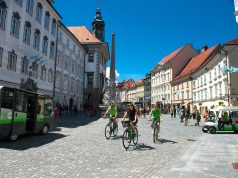
Set in the Turkish Riviera, where forest meets sea, AHÃMA is the region’s newest retreat: a crafted equilibrium of architecture, design and wilderness.
Located in the protected bay of Günlüklü, 10 kilometres east of Göcek, this salt-and-turf sanctuary, member of The Aficionados––a travel resource for those seeking lodgings that meld luxury, design and authenticity––, unfolds in the embrace of rare sweetgum trees, ancient mountains, and the rhythmic hush of the Aegean.
AHÃMA takes its name from the Lycian word for “beloved”, and everything within its 20-hectare eco- biome feels held with care. It is a place where conservation frames every gesture, and where the custodians act not as proprietors, but as stewards of a living landscape. Framed by the Babadağ Mountains and protected woodlands, this is a refuge where architecture responds to landforms, and interiors speak in tones of quiet reverence.
The built environment follows the contours of the terrain. Cabana-style suites, maisonette guesthouses and a singular private villa are arranged like organic outcrops, each positioned to blend into the forest canopy or gaze over the Aegean. Timber structures echo the upright rhythm of surrounding trees, while stone, reed, linen and marble create a natural cadence indoors. The palette borrows from the wild: chalked whites, wet clay greys, warming amber and charred noir. Nothing intrudes— everything listens.

Creative direction is helmed by a team of local and international designers, including Spanish landscape designer Álvaro Sampedro who created the vast gardens and planting that fringe the wild forest and beach. Within the forest, the acclaimed Mexican architect Héctor Esrawe conceived the forest-bound Sound Temple. The interiors were shaped with the collaboration of local artisans: 200- year-old kilims restored by craftswomen, custom ceramics by Studio Neu, and sculptural lighting by Lana Launay. Textural restraint defines the design language—refined, soulful and deeply contextual.
The Glass House stands as AHÃMA’s architectural and social heart. Entirely transparent, it dissolves the boundaries between indoors and out, opening to a dialogue of trees, sky and shifting light. Four restaurants extend the sensory language of the hotel. The Glass House offers refined Mediterranean plates layered with Aegean simplicity. Ēge Umi channels Japanese omakase through local ingredients, unfolding in restrained precision. AY brings fire to the table — a primal, open-air culinary ritual of root vegetables, meat and fish kissed by smoke. Mezkla Göcek reimagines Mexican cuisine through Mediterranean produce, bold and coastal in spirit.
The wellness philosophy of this new member of The Aficionados is atmospheric rather than prescriptive. Wellness is not offered, it is embedded. Practices unfold in rhythm with the land: forest- bathed yoga, breathwork on sun decks, sound journeys in the sculptural Sound Temple. Treatments draw from local botanicals and traditional healing methods, many centered on the aromatic sweetgum tree. Stone, salt, and silence shape rituals rooted in nature.
At the highest point of the property lies the private villa: a sculptural hideaway with an infinity pool, secluded beach access, expansive interiors and a dedicated hospitality team. Designed for arrival by sea or a quiet inland escape, it offers autonomy without detachment.
AHÃMA is located within a storied stretch of coastline, part of ancient Lycia. Cultural echoes include the ruins of Xanthos and Letoon, the stone-carved tombs of Kaunos, and the silent hilltop remains of Kayaköy. Nearby bays once known to Cleopatra now offer turquoise solitude, while protected beaches serve as nesting grounds for sea turtles. Göcek’s famed marina lies just beyond the headland, anchoring the property to the rhythms of the sea.
What defines this newest member of The Aficionados is not grandeur, but gravity, a sense that everything exists with purpose. Nature is not framed as backdrop, but as protagonist. Here, time loosens, materials breathe, and architecture slips into silence. More than a hotel, AHÃMA is a ritual: an ongoing conversation between nature, craft, and the poetry of place.





